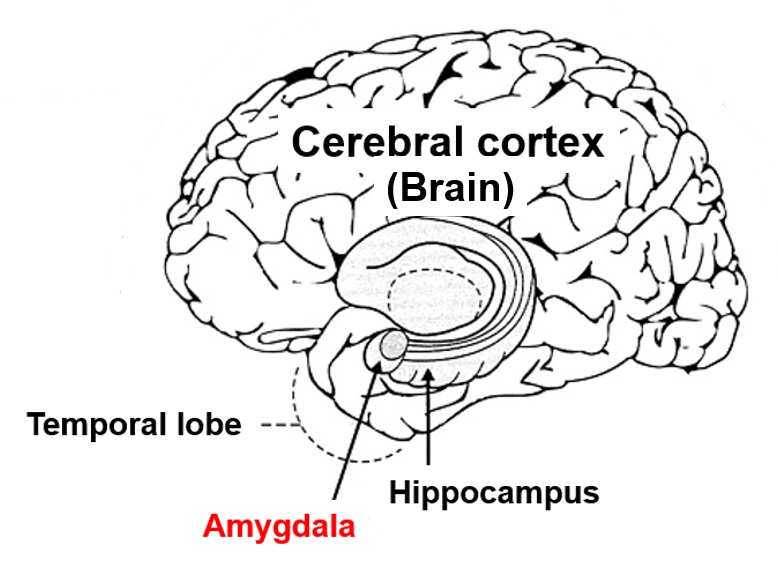Social Anxiety Disorder among Nigerian Youths
By: Oluwabukola Janet Adeyeri, MSc. Child & Adolescent Mental Health. Medically reviewed by A. Odutola, MB.BS, PhD

An AI generated image of a young lady standing in front of a class looking anxious before she speaks.
Have you ever found yourself in a situation where your palms start sweating, legs shaking and your heart pounding when in public places like church, school, or work?
You are anxious to come out in public and engage in conversations with others because of the fear of being judged or looking stupid. Sometimes, you even feel like the ground should open up and swallow you especially when you are being called out in any social gathering.
If this is you, you might be dealing with something deeper than shyness. That something or feeling is called Social Anxiety Disorder and many Nigerian youths silently battle with it.
In this blog, you’ll learn some basic information about social anxiety disorder - its causes, symptoms, diagnosis, and treatment. Let’s dive in!
Social anxiety disorder (SAD), also known as social phobia is one of the most prevalent types of anxiety disorder characterized by an intense and persistent fear of being judged, scrutinized, rejected, or embarrassed in a social setting. [1]
It should not be confused with another SAD acronym, which stands for Seasonal Affective Disorder - a type of depressive disorder caused by changes in seasons.
At one point or the other, everyone has experienced anxiety when called to speak or engage with the public, especially in unfamiliar environments.
Anxiety is a normal response to anticipated or unanticipated events and can help an individual to exercise caution. But if this becomes persistent and overwhelming that you avoid anything that has to do with social situations, it’s now an anxiety disorder.
Social anxiety disorder is more than shyness as so many people believe it to be. It’s a mental health condition that affects a person’s daily functioning, relationships, work life, and even school life. It’s a mental health disorder that starts during adolescence because this period marks the beginning of a lifetime transition in a human life. [2]
An info poster on Social phobia in Nigerian undergraduates. Click on image to enlarge.
While there is limited data on the prevalence of social anxiety disorder among Nigerian youths (17 years and above) generally, limited research has found out that nearly 1 in 10 Nigerian undergraduate students will experience social phobia over a 12- month period as well as in their lifetime. [3] The condition is also more common in females than in males, but the course (i.e., onset) appears to be the same for male and females. [4]. Compare these limited Nigeria-related social phobia facts with the global data shown in the image below. More local research obviously is needed to better understand the impact of SAD on the health and wellbeing of Nigerian youths.
Social anxiety disorder by the numbers. Credit.
You may have social anxiety disorder if you’ve been consistently experiencing these symptoms for the past six months:
Social anxiety disorder can also be associated with other mental health conditions like depression or panic disorder.
An illustration showing risk factors for Social Anxiety Disorders in Nigerian Youths. Click on image to enlarge.
The causes of social anxiety disorder are not specific just like other mental health conditions. It can be as a result of:
Some people are prone to social anxiety disorder due to how their brains are wired. There is a structure located deep within the brain nearer to the side of the ears, known as the amygdala. It is responsible for processing emotions like fear and anxiety. People with hyperactive or heightened amygdala tend to have social anxiety disorder thereby contributing to the avoidance and fear symptoms of the disorder. [1]

Left-sided view of the brain showing amygdala position deep in a part of the brain (temporal lobe) that is located in the skull, next to the .ears..
Adverse childhood experiences like chronic childhood verbal abuse, or embarrassing/unpleasant moments in the past such as being laughed at or bullied in the classroom can increase your odds later of social anxiety disorder. Also, isolated upbringing and parenting styles like being aggressively critical or judgemental, or being overly protective of your children may unintentionally reinforce the fear of being judged and raise the odds for SAD.
If you grow up within a communal society or family that emphasise strict expectations, like in achievements, social associations, marital associations, family honour, etc., your odds for social anxiety disorder may be high later.
You may inherit social anxiety disorder from your parents. For example, if the majority of your family members have this condition, it’s likely for you to have it too. However, it is not totally clear yet if this disorder is actually inheritable or a learned behavior.
To be diagnosed with social anxiety disorder, your symptoms must have been persistent for at least six months and interfered with your normal daily functioning. [1]
If you need help with your diagnosis, you can reach out to healthcare providers like mental health professionals, psychologist, therapist, psychiatrist, or a social worker who are equipped with the skills to help diagnose this disorder.
There is a huge difference between social anxiety disorder and shyness. Shyness is like a personality trait and everyone in a way or the other has been shy before. A shy person is always trying to observe the environment before joining in any conversation but when they warm up, they become free with those around them and the setting they find themselves in. Though it may be uncomfortable at first, it’s not an overwhelming feeling.
Social anxiety disorder on the other hand is an overwhelming mental health condition that prevents you from engaging in social interactions because of the fear of being judged or rejected.
Just like some other mental health conditions, social anxiety disorder can also be treated. Here are some approaches used:
One of the most effective approaches to managing social anxiety disorder is CBT. It helps you change your negative thoughts and behavioral patterns to positive ones.
Exposure-based CBT exposes you to situations that triggers that fear and equips you with effective strategies you need to cope.
In some cases, certain types of medications called antidepressants or anti-anxiety medications are used to treat this disorder. Selective serotonin reuptake inhibitors (SSRIs) like fluoxetine (Prozac) or serotonin and norepinephrine reuptake inhibitors (SNRI) like sertraline (zoloft) and venlafaxine are common antidepressants used to manage social anxiety disorder. Benzodiazepines is also an anti-anxiety medication that helps reduce your anxiety level.
Your doctor or psychiatrist is in the best position to prescribe the right medication for your condition.
Sometimes, all you need to thrive with social anxiety disorder is finding support groups of people with the same condition as you. That feeling of knowing you are not alone is enough to make a huge difference in how you feel. [5]
Grounding techniques like deep breathing and mindfulness exercises can be employed to help calm your nerves before, during and after social events.
You can’t totally prevent yourself from having social anxiety disorder. However, you can always prevent the severity of the condition if you notice you are feeling anxious. Here are ways that you can do so:
Social anxiety disorder is a common mental health disorder that affects a lot of people around the world. If you’ve been noticing some of the symptoms highlighted in this post, it’s best you seek help early by scheduling an appointment with a mental healthcare professional.
Definitely! You can live like everyone else so long as you are taking the necessary medications, going for therapy, and trying your grounding techniques, you’ll be able to cope.
Social anxiety can go away with time as a person grows older or changes environment. However, for some people, the disorder can only be managed with medications and therapy.
You can deal with social anxiety by having adequate sleep, eating a healthy and balanced diet, avoiding caffeine or alcohol intake, and improving your engagements with people.
Sources:
1. National Institute of Mental Health (NIMH). Social anxiety disorder: what you need to know - [Internet, revised 2025]. [Cited 2025 Jul 2]. Available from here.
2. Leigh E, Clark DM. Understanding social anxiety disorder in adolescents and improving treatment outcomes: applying the cognitive model of Clark and Wells (1995). Clin Child Fam Psychol Rev. 2018 Sep;21(3):388-414. doi: 10.1007/s10567-018-0258-5. Available from here.
Bella TT, Omigbodun OO. Social phobia in Nigerian university students: prevalence, correlates and co-morbidity. Soc Psychiatry Psychiatr Epidemiol. 2009 Jun;44(6):458-63. doi: 10.1007/s00127-008-0457-3. Available from here.
4. Asher M, Asnaani A, Aderka IM. Gender differences in social anxiety disorder: A review. Clin Psychol Rev. 2017 Aug;56:1–12. Available from here.
5. NHS.UK. Social anxiety (Social phobia). [Internet] Last reviewed 2023 May 17. [Cited 2025 Jul 2]. Available from here.
Related:
Anxiety Disorders: What Every African Woman Need to Know
Depression among African women
Published: July 10, 2025
© 2025. Datelinehealth Africa Inc. All rights reserved.
Permission is given to copy, use and share content for non-commercial purposes, without alteration or modification and subject to source attribution.
DATELINEHEALTH AFRICA INC., is a digital publisher for informational and educational purposes and does not offer personal medical care and advice. If you have a medical problem needing routine or emergency attention, call your doctor or local emergency services immediately, or visit the nearest emergency room or the nearest hospital. You should consult your professional healthcare provider before starting any nutrition, diet, exercise, fitness, medical or wellness program mentioned or referenced in the DatelinehealthAfrica website. Click here for more disclaimer notice.